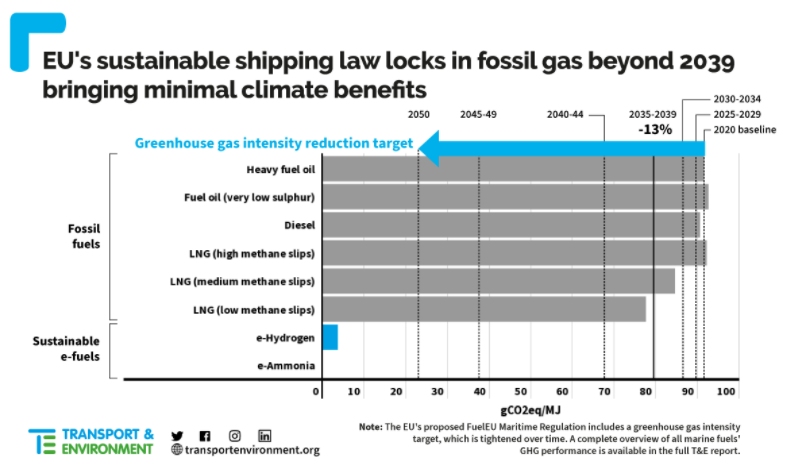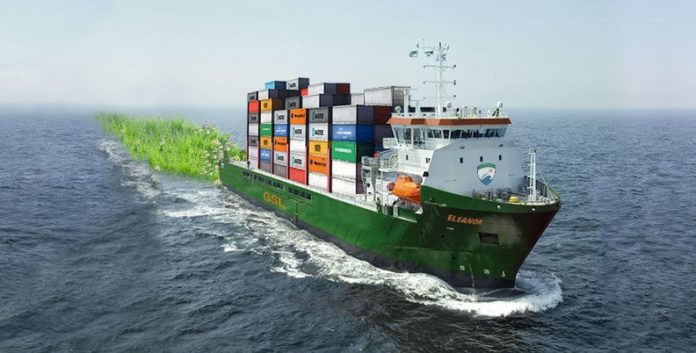A new study from the European Federation of Transport & Environment (T&E) shows that a quarter of Europe’s shipping will be fossil gas-powered by 2030, as misguided European Union’s (EU) sustainability targets encourage the uptake of liquefied natural gas (LNG).
This is expected to lock in fossil fuel use for decades, while bringing limited benefits to the climate, according to T&E.
Delphine Gozillon, sustainable shipping officer at T&E, said that the shipping industry is one of the world’s biggest polluters and is heavily reliant on fossil fuels.
“The old narrative of gas as transitional fuel just doesn’t hold and we cannot afford to shift from one fossil fuel to another. It will not get us to zero emissions by 2050 and, by putting more methane into the atmosphere may even fry the planet faster,” explained Gozillon.
The EU targets are designed to gradually exclude the most polluting oil-powered ships and drive the uptake of sustainable fuels. Last year, the European Commission proposed a law requiring ship operators to reduce the lifecycle carbon footprint of the fuels.
Instead, they will be replaced by fossil LNG-powered ships, which the regulation gives the green light to well into the 2040s.
LNG will make up 23% of the total energy used in EU shipping by 2030, up from 6% today, with costs cheaper than genuinely clean alternatives, according to T&E’s report.
As the commission proposal stands, ships will have little or no incentive to switch to more sustainable alternatives, such as green hydrogen or hydrogen-based fuels known as “e-fuels.”
Currently, there is no mandate for e-fuels, meaning shipowners can rely on fossil LNG and dubious biofuels to meet EU targets into the 2040s.

“Genuinely clean solutions do exist, but currently, they are expensive,” noted Gozillon, who went on to add that a green shipping future is possible, “if we kick start demand now.”
T&E recommends mandating a 6% target for shipping e-fuels by 2030 as the most straightforward way to ensure supply and demand for sustainable fuels while providing business predictability to shipowners and fuel suppliers.
Without this minimum share of e-fuels and stricter greenhouse gas targets, T&E believes that full decarbonisation by 2050 will likely be “out of reach.”
The EU’s shipping fuel law, FuelEU Maritime, is currently under discussion in the European Parliament and the Council, with a final text expected in the second half of 2022. Meanwhile, T&E calls on policymakers to adopt key changes to the proposal.







